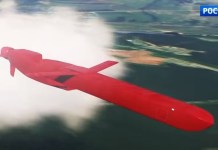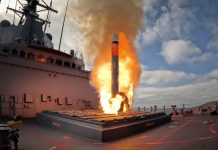The US Missile Defense Agency (MDA) canceled all 17 of the cybersecurity assessments planned for last year after failing all similar tests annually since 2017 and instead developed a new cyber test approach, the Government Accountability Office (GAO) said in a report published Tuesday.
“Despite failing to meet annual operational cybersecurity assessments since 2017, MDA canceled its planned fiscal year 2020 operational assessments, instead taking steps to implement a new approach designed to improve cyber system requirements while streamlining cyber test planning,” the report said.
The MDA had planned 13 Cooperative Vulnerability and Penetration Assessments, which provide initial information about the resilience of a system in an operational context, as well as four Adversarial Assessments, which characterize the defense capabilities and operational effects of an enemy cyberattack. None, however, were completed.
While the agency stated that the tests were unnecessary this year given the availability of previous information and the ongoing redesign of the testing system altogether, the report noted that “the lack of testing during the fiscal year 2020 coupled with persistent testing shortcomings over the last 3 years are representative of a broader MDA cybersecurity development issue.”
The MDA, founded in 2002, is the part of the Department of Defense responsible for developing and managing the US’s ballistic missile defense systems both domestically and abroad.
However, the report noted that the nature of the agency has changed slightly with the advent of hypersonic weapons, which post unique challenges compared to ballistic missiles, requiring the agency to transition their Ballistic Missile Defense System into simply the Missile Defense System.
US-China Negotiations
Meanwhile, the Biden administration is trying to bring China to the negotiating table regarding nuclear arms, but it also sees the importance of engaging Beijing bilaterally, Bonnie Jenkins, nominee for the position of Under Secretary of State for Arms Control and International Security, said during her confirmation hearing on Wednesday.
“China is an important country in terms of nuclear arms issues. They are a significant threat to us,” Jenkins said. “Certainly we have to find a way to get them at the [negotiating] table. As you know, it has been a challenge to do that.
We do think, and I think the administration thinks that a bilateral effort is a way to go because there are certain security issues that I think that we want to look at specifically with China. So, we want to engage them.”
Jenkins also said the Biden administration is discussing the next steps on engaging China bilaterally.
“They try to start the discussion so we can prevent miscalculation, we can have more transparency and get a much better understanding of what’s happening for everybody’s security,” she said.
On February 3, Russia and the United States exchanged diplomatic notes notifying the other of the completion of internal procedures required for extending the New Strategic Arms Reduction Treaty (New START). The treaty will be extended for a five-year term, ending on February 5, 2026, without any modifications.
While the previous Trump administration consistently pushed for China to join the arms control negotiations, Beijing has repeatedly said it is not interested in trilateral talks on the matter.
The United States’ decision to revive the treaty, which was sealed by former President Barack Obama and then-Russian President Dmitry Medvedev, was hailed by Russia. Russian Ambassador in Washington Anatoly Antonov said Moscow expects further talks with the United States on the issues of strategic stability.




